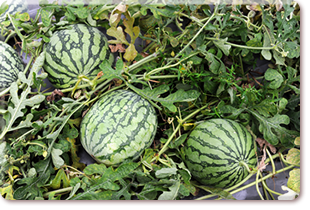Poultry farming has emerged as a significant aspect of agriculture, providing a sustainable source of protein-rich food worldwide. However, ensuring the health and productivity of poultry flocks remains a constant challenge for farmers. In recent years, the utilization of natural supplements like tagiri has gained traction within the poultry farming community. This article delves into the usefulness of tagiri in poultry farming, exploring its benefits, applications, and potential impact on the industry.
Understanding Tagiri:
Tagiri, scientifically known as Prosopis africana, is a multipurpose tree native to West Africa. Traditionally, various parts of the tagiri tree have been utilized for medicinal, nutritional, and agricultural purposes. In poultry farming, tagiri leaves and pods are commonly used as feed supplements due to their rich nutrient content and potential health benefits for birds.
Nutritional Composition of Tagiri:
Tagiri leaves and pods are known to contain a plethora of essential nutrients beneficial for poultry health and growth. These include protein, carbohydrates, vitamins (such as vitamin A, B-complex vitamins), minerals (such as calcium, phosphorus, iron), and phytochemicals (such as tannins, flavonoids). The balanced nutritional profile of tagiri makes it a valuable dietary supplement for poultry.
Benefits of Tagiri in Poultry Farming:
1. Improved Growth Performance: The protein-rich content of tagiri promotes growth and development in poultry birds, leading to better weight gain and muscle development.
2. Enhanced Immunity: The presence of vitamins, minerals, and phytochemicals in tagiri strengthens the immune system of poultry birds, making them more resistant to diseases and infections.
3. Digestive Health: Tagiri contains fiber and tannins that aid in digestion and promote gut health in poultry birds, reducing the risk of digestive disorders.
4. Natural Antioxidants: The antioxidant properties of tagiri help neutralize harmful free radicals in the body, protecting poultry birds from oxidative stress and associated health issues.
5. Cost-Effectiveness: Utilizing tagiri as a feed supplement can reduce dependency on expensive commercial feed products, offering a more sustainable and cost-effective alternative for poultry farmers.
Applications of Tagiri in Poultry Farming:
1. Feed Additive: Tagiri leaves and pods can be dried, ground, and incorporated into poultry feed formulations as a natural additive to enhance nutritional value.
2. Fodder Production: Tagiri trees can be cultivated as fodder crops for poultry birds, providing a continuous source of nutritious feed material throughout the year.
3. Medicinal Use: In addition to its nutritional benefits, tagiri extracts have been explored for their potential medicinal properties in treating poultry diseases and promoting overall health.
Challenges and Considerations:
While tagiri presents numerous benefits for poultry farming, certain challenges and considerations need to be addressed. These include:
1. Quality Control: Ensuring the quality and consistency of tagiri feed supplements is essential to prevent contamination and maintain optimal nutritional value.
2. Palatability: Some poultry birds may exhibit preferences or aversions to tagiri-based feed, necessitating careful monitoring and adjustment of feed formulations.
3. Environmental Impact: Sustainable cultivation and harvesting practices must be employed to mitigate any adverse environmental effects associated with tagiri production.
In Conclusion: In conclusion, tagiri holds significant potential as a valuable resource in poultry farming, offering a natural and sustainable solution to enhance the health, productivity, and profitability of poultry operations. By understanding the nutritional benefits, applications, and considerations associated with tagiri supplementation, poultry farmers can effectively harness its advantages to optimize the performance of their flocks and contribute to the advancement of the poultry industry.





